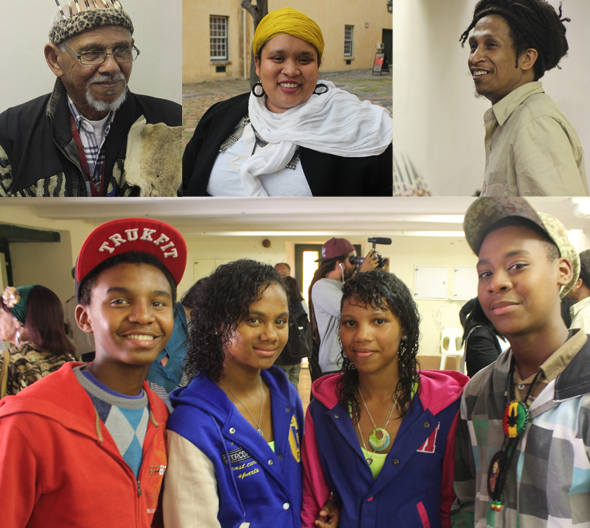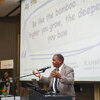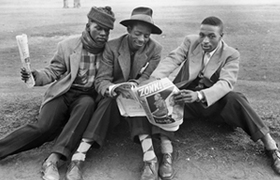Reviving an ancient tongue
17 June 2014
The sounds of Khoekhoegowab, not heard for centuries in Cape Town, are reverberating in the Mother City again.
The language known as Khoekhoegowab (but also Nama or Nama-Damara) is spoken mainly in Namibia, some parts of South Africa and Botswana. It is related to the Khoe (or Khoi) language that was spoken for many centuries by the inhabitants of the area known today as the South-Western Cape – and lost as a result of many of its speakers being killed in warfare with European settlers or through diseases such as smallpox. The remaining Cape Khoe speakers were, by and large, gradually assimilated into colonial society, becoming part of a much larger and diverse group that in time came to be called coloured.
Linguistically, these Khoe speakers and their descendants shifted to speak mainly a version of Dutch that would eventually become Afrikaans. Justin Brown, a doctoral fellow at the Institute for Humanities in Africa (HUMA) and a PhD candidate in linguistics, is following a group of coloured people in Cape Town who are embracing Khoekheogowab as their language.
"They view it as the closest thing to the original Khoe language of their ancestors, and are striving to retrieve and reclaim something which they believe is part of them and deeply significant," he explains.
Brown is interacting with members of the Khoi and San Action Awareness Group (KSAAG), a non-profit organisation that, among other things, runs weekly Khoekhoegowab classes at the Cape Town Castle.
"The revitalisation endeavour takes different forms and varies from person to person, but a large part of it involves celebrating, promoting and also learning the Khoekhoegowab language. To this end, Khoekhoegowab language workshops and/or lessons have been taking place sporadically in Cape Town since 2008," clarifies Brown, who attends these classes for research purposes.
"Progress has been hampered by many factors such as lack of funding, lack of teaching materials, and the difficulty of securing suitable venues; but nevertheless, the lessons are continuing, and there is growing interest and participation," says Brown.
He observes: "There is a strong celebratory dimension to these activities and a great deal revolves around affirming and celebrating the beauty of the Khoekhoegowab language, its sounds, its rhythms, the feel and texture of the language and its musical nature."
Story by Abigail Calata. Photos by Yazeed Kamaldien.
 This work is licensed under a Creative Commons Attribution-NoDerivatives 4.0 International License.
This work is licensed under a Creative Commons Attribution-NoDerivatives 4.0 International License.
Please view the republishing articles page for more information.









